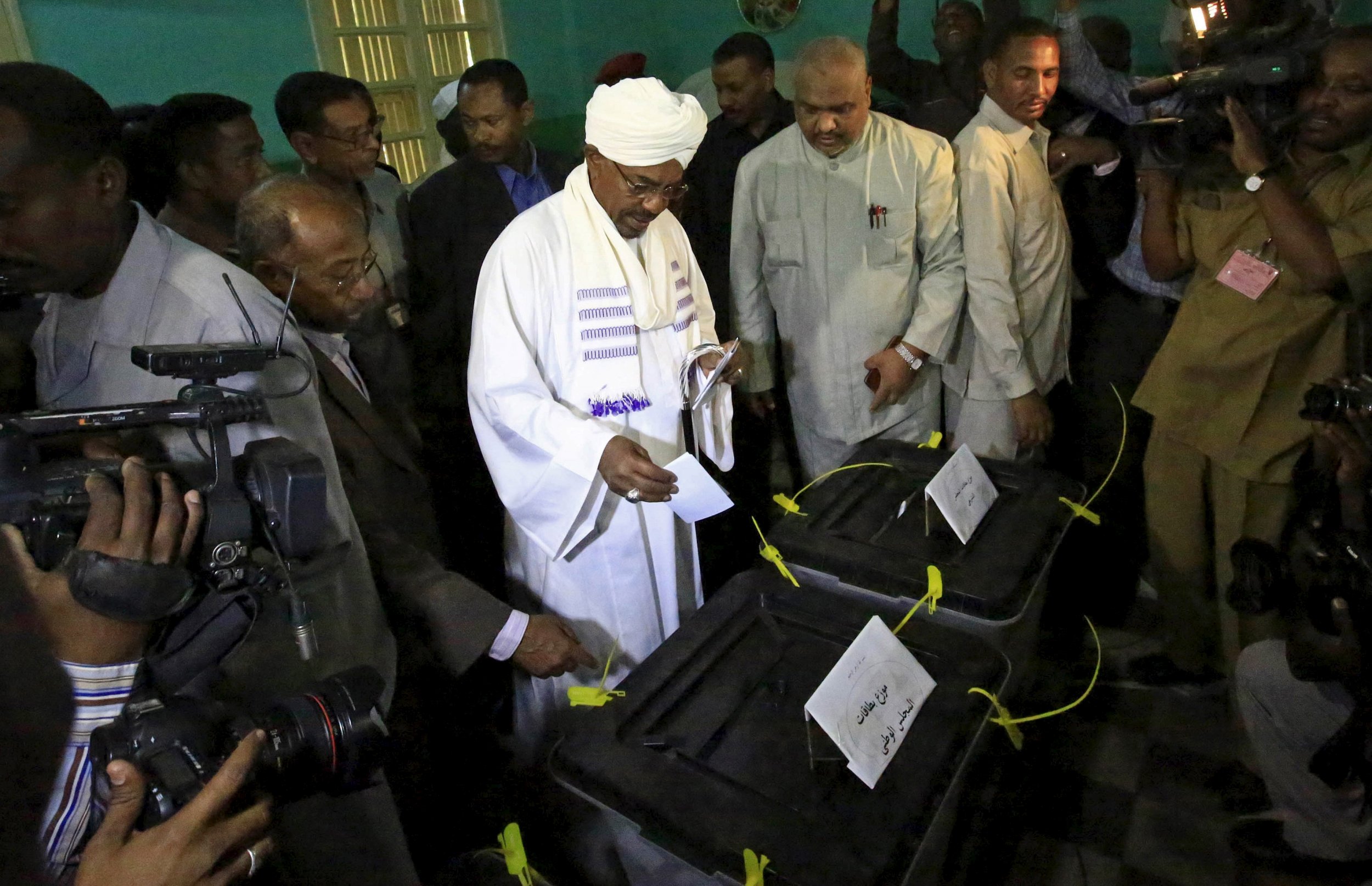
Sudan citizens go to the polls today in an election which has already been discredited by the European Union.
Voting takes place in presidential and parliamentary elections from today until Wednesday as president Omar al-Bashir looks set to extend his 26-year rule of the north African nation.
Foreign affairs chief Federica Mogherini has declared that the EU would not be supporting the election process following the Sudanese government's failure to take part in constructive dialogue with political opponents and armed groups.
Bashir, who has been charged by the International Criminal Court for war crimes, is expected to achieve a landslide victory in the election. Major opposition parties have boycotted the vote, leaving 15 little-known candidates offering a meager challenge to the incumbent president extending his term by another five years.
Bashir and his ruling National Congress Party have also determined the outcome of the parliamentary elections by already announcing that they willl allow opposition parties to take around 30% of the seats, according to analysts.
More than 13 million people have registered to vote in the elections.
Suliman Baldo, executive director of human rights organisation Sudan Democracy First Group, warns that the polls could result in further violence in the war-torn country.
"The elections are going to increase the isolation of the ruling party among the population, aggravate the political crisis in the country and lead to the escalation of conflict in all regions of Sudan, particularly Darfur, South Kordofan and Blue Nile," says Baldo.
The NCP's failure to attend a dialogue forum with opposition parties and armed groups in Addis Ababa last month was the final straw for the EU, which has since declined to engage in election monitoring.
"When dialogue is bypassed, some groups are excluded and civil and political rights are infringed, the upcoming elections cannot produce a credible result with legitimacy throughout the country," said Mogherini. "The people of Sudan deserve better. We therefore chose not to engage in support of these elections."
The Sudan Troika of Norway, the UK and U.S. also expressed "great disappointment" over Khartoum's failure to participate in dialogue, saying that "an environment conducive to participatory and credible elections does not exist".
Activists have been calling for mass protests and demonstrations similar to the 2013 uprising which resulted in the deaths of nearly 200 civilians and at least 800 arrests. The government has responded by granting additional powers to Sudan's feared state security apparatus, the National Intelligence and Security Services (NISS).
Human rights group Amnesty International reported that NISS confiscated all editions of 14 newspapers from printers in February. After the signing of the Sudan Call agreement in December, which brought together opposition parties in a democratic coalition, several prominent members of the group were detained for four months and only released last week ahead of the election.
Kayla Branson, North Africa intelligence analyst at global risk consultancy firm the Risk Advisory Group, says that heavy-handed security tactics are likely to force protesters off the streets and online instead.
"The consistently heavy-handed response from security forces in Sudan has played a serious role in deterring people from taking to the streets," says Branson. "It's blatantly apparent not just from the structural authoritarianism but from the measurements the government has taken that it's very doubtful these elections will even remotely approach anything which is free and fair."
Bashir has been in power in Sudan since a 1989 coup. He is the subject of a recently-shelved ICC investigation into alleged genocide and war crimes in the Darfur conflict, which began in 2003 and has resulted in the death of at least 300,000 people and the displacement of two million. The investigation was shelved after failure by the UN Security Council to press for the arrest of Bashir, according to ICC officials.
Uncommon Knowledge
Newsweek is committed to challenging conventional wisdom and finding connections in the search for common ground.
Newsweek is committed to challenging conventional wisdom and finding connections in the search for common ground.
About the writer
Conor is a staff writer for Newsweek covering Africa, with a focus on Nigeria, security and conflict.
To read how Newsweek uses AI as a newsroom tool, Click here.








